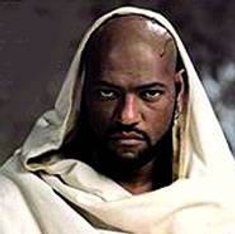1. “Young Goodman Brown” is an allegory (symbolic narrative). What do the following represent?
Young Goodman Brown – He symbolizes the young and innocent before they witness the evil in others. He also represents Adam in the Biblical Story, Adam and Eve, because he is tempted by the devil to cave into sin and turn away from God.
Faith – She also symbolizes Eve, in Adam in Eve, because she is Young Goodman Brown’s wife. She wears a pink ribbon in her hair to symbolize the goodness that she is. She represents the faith Young Goodman Brown should have in the Lord, and when he left her, it was like he was losing faith in God.
The Elderly Traveler/Fellow-Traveler – The Elderly Traveler represents the devil because he is tempting Young Goodman Brown and Faith to turn away from God and follow evil. He even carried a walking stick around with him that had a big black snake carved into it, which symbolizes the snake from the Biblical Story of Adam and Eve.
Goody Cloyse – Goody Cloyse was Young Goodman Brown’s catechist teacher when he was young. She symbolizes how not everyone is perfect and everyone is going to sin. It was interesting to see her at the ceremony because she is a catechist and is supposed to turn away from evil. Instead, she is in woods following the devil.
The Ceremony – The ceremony symbolizes the coming of sin or sinning. When Young Goodman Brown and Faith are at the ceremony, they were introduced to the devil and turning away from God. The ceremony was a way of confirming that he has lost his innocence and is growing up.
The Pink Ribbon – The pink ribbon symbolizes the goodness and purity in life. Faith would wear this in her hair because she believed in following the Lord. When Young Goodman Brown was in the woods, he saw the pink ribbon falling to the grown. This meant that there is no good in what he is about to do.
Young Goodman Brown’s Journey – His journey symbolizes the whole Biblical Story of Adam and Eve. It also represents how a child loses their innocence as grow up and face reality. Everyone is innately evil, and there comes a time in life when we just have to face the facts.
2. Identify the following for “Young Goodman Brown”:
Theme Message of Theme Element Used to Establish
The theme of this story was sin. This story is didactic or intended to teach a lesson to its readers. “Young Goodman Brown” represented the temptation of the devil and caving into sin rather than following the Lord. Obviously, this is not smart and caused humanity to lose their innocence. Now everyone is born with original sin because of Adam and Eve’s little mistake. Therefore, the message of the theme is that humanity is innately evil. No one can escape the known fact that no one is perfect and we all make mistakes. This theme was established with the plot and conflict. Young Goodman Brown’s journey was about his conflict in believing in the Lord. “My Faith is gone!” cried he, after one stupefied moment. “There is no good on earth; and sin is but a name. Come, devil; for to thee is this world given” (6). As he got deeper and deeper into the woods, he began to lose faith in God and started to follow the devil. “The road grew wilder and drearier and more faintly traced, vanished at length, leaving him in the heart of the dark wilderness, still rushing onward with the instinct that guides mortal man to evil” (6). Then as soon as he entered the ceremony, he realized his mistake and wanted to leave, but it was too late. “Depending upon one another’s hearts, ye had still hoped that virtue were not all a dream. Now are ye undeceived. Evil is the nature of mankind. Evil must be your only happiness. Welcome again, my children, to the communion of your race.” It is human to be curious and end up doing the wrong thing that could impact your life. Even after the ceremony, Young Goodman Brown could not live his life the same way knowing that others had loss their innocence too. His sin caused him to live the rest of his life depressed.


